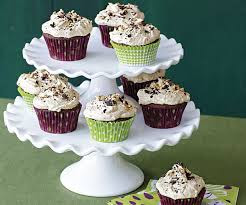Food
The psychology of cupcakes
It took 355 cupcakes to earn this American flag. None mosted likely to waste. (Deb Lindsey/FOR THE WASHINGTON POST)
By Andrea AdlemanFebruary 7, 2012
As the Modern Cupcake Minute swirls right into its second years, America simply might need to confess that what we're handling — 669.4 million sold from October 2010 to October 2011, inning accordance with the marketing research firm NPD — isn't a trend. It is an enduring relationship.
"Cupcake society has been renowned in the U.S. for 100 years," says Steve Abrams, co-owner of New York's Magnolia Bakeshop. American dishes for cake baked in small mugs and the call "mug cake" appeared previously, in the late 18th and very early 19th centuries. "There's no cupcake craze."
He should know. Cupcakes stand for fifty percent of his company's $20 million in yearly sales, which surged following the bakery's 2000 cameo look in HBO's "Sex and the City."
Amongst mobile, single-serving treats, cupcakes stand apart for their red-carpet glamour and unlimited taste mixes. Since the Food section's Cupcake Battles in 2008, at the very least 30 cupcake stores and 6 cupcake vehicles have sprung up about Washington.
The more the merrier, says Adnan Hamidi, proprietor of Alexandria Cupcake in Old Community: "It really helps bent on know that there are more bakeries opening. It shows the stamina of the industry. As lengthy as no one's opening up beside me, I invite the competitors." Langkah Pasti Menangkan Casino Online
One food trendspotter attributes cupcakes' retail climb to a convergence of factors.
"If you recall at the modern arrival of the cupcake, it happened to accompany and was the incentive for the niche, specialized bakeshop that obviously was ripe to find," says Kara Nielsen of the Facility for Cooking Development in San Francisco.
At the same time cupcake-only bakeries began to increase in the mid to late 2000s, food blog sites, review websites and user-generated content removed on the Internet. Individuals that could all of a sudden self-publish their viewpoints needed something to discuss, and the cupcake proved notable, she says.
As home budget plans tightened up throughout the down economic climate of the previous 4 years, cupcakes became an inexpensive luxury, a means to alleviate the angst of repressing big-ticket wishes.
"Individuals are sick of constantly stressing over what they're spending," says financial expert Domenick Celentano, that discusses the food business on About.com. "With a cupcake, recession-weary customers can treat themselves."
Taking possession of a premium cupcake is a qualitatively various deal from buying a sweet bar at a medication store, says Chris Carbone.
He studies customer trends for the marketing research firm Innovaro and says cupcakes appeal to post-modernists that worth creativity, credibility, visual design, customization and in your area sourced products.
